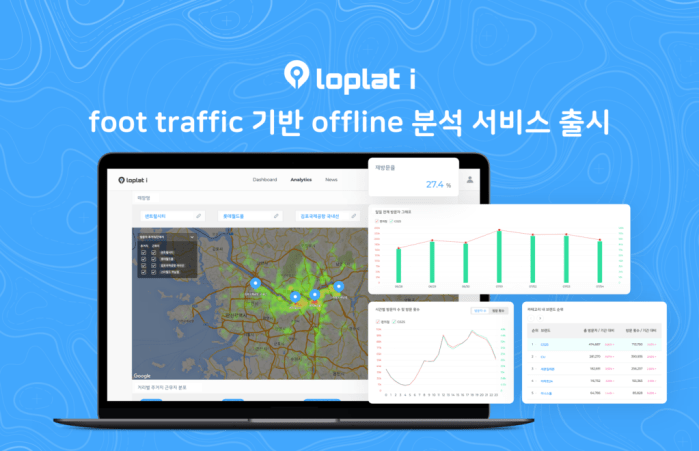South Korea’s top internet portal operator is not Google, but Naver. Naver is seen as one of the most successful tech startups in Korea. However, what many might not know is that Naver has been investing heavily in startups with the aim of bringing in startups with high growth potential for innovation and growth. They established a startup accelerator called Naver D2SF (D2 Startup Factory) back in 2015, which has already invested in over 100 startups. Altogether Naver D2SF has invested in startups that have a combined corporate value of over $2 billion. Naver has invested over $70 million into these 100+ startups which are mainly early-stage startups.
What is Naver D2 Startup Factory (D2SF)?
Naver D2 Startup Factory, also known as Naver D2SF, is an accelerator program established by Naver Corporation, a leading South Korean technology company. The accelerator program aims to support and nurture early-stage startups by providing them with resources, mentorship, and a platform to grow their businesses. It focuses on startups in various technology sectors, including artificial intelligence (AI), data analytics, cloud computing, mobile applications, e-commerce, and more. Naver D2SF selects promising startups through a rigorous application process and offers them a range of benefits and support.
Selected startups receive financial support in the form of seed investment or venture capital funding. This funding helps startups cover their initial costs and accelerate their growth. In addition, Naver D2SF provides startups with access to experienced mentors and industry experts. These mentors offer guidance, advice, and networking opportunities to help startups refine their business strategies, develop their products, and overcome challenges. Startups accepted into the program gain access to Naver’s extensive technological infrastructure and resources. This includes cloud computing services, data analytics tools, and various development platforms offered by Naver.
Naver D2SF facilitates networking opportunities for startups, connecting them with other entrepreneurs, investors, and potential business partners. This networking can lead to collaborations, partnerships, and investment opportunities. Therefore, the program offers educational programs and workshops covering various aspects of entrepreneurship, business development, marketing, and technology. These programs help startups acquire new skills and knowledge to scale their businesses effectively.
Why join NAVER D2 Startup Factory

Naver D2 Startup Factory is one of the top technology startup accelerators in Korea. However, the main reason startups look to join the program is for a chance to cooperate with Naver. Naver is not just a search engine. Naver has been looking to innovate in a variety of technology fields such as AR, autonomous driving, fintech, IoT, AI, robotics, healthcare, AR/VR, and more. However, Naver can not do it alone which is why they are looking at startups and creating an environment where startups can immerse themselves in technology research and product development. In addition, Naver D2 Startup Factory helps promote, market, and attract follow-up investments.
Naver directly invests in startups accepted into the D2SF accelerator program. However, most startups in the program get the majority of their investment from follow-up investments. Startups a part of D2SF were able to attract over $200 million in additional investments thanks to having Naver as their initial investor. Moreover, Naver has stated that over 70% of the startups in the D2SF program are looking for ways to cooperate with Naver in various services. Naver has invested in many fields including content, blockchain, AI, digital health, and even robotics. Once a startup shows high growth potential they have a high chance of an M&A.
D2 Startup Factory offers office space for startups in Gangnam. They are also creating a second office building for startups in Bundang (Gyeonggi-do).
Naver Supports Content Creators in Korea
Naver is famous for Naver Webtoons, the top platform of digital comics. Thanks to Naver Webtoons, Naver has been able to widen its readership to other Asian countries as well as the United States and Europe. Naver stated in 2020 that they will invest over $160 million to support SMEs and content creators connected with Naver’s portal platform. They aim to create a strong ecosystem for artists and content creators in Korea. A majority of the money will go into helping artists and small merchants sell their products on Naver’s shopping platform. In addition, Naver will support content creators by connecting them with experts such as certified labor attorneys, customs agents, and loan consultants.
Bringing content creators onto their platform is Naver’s plan to move further into commerce, media streaming, and fiance. Naver is also looking into creating a new joint venture with SoftBank to help Korean companies bring their product, content, or services overseas. There are so rumors that Naver will work with CJ Logistics, Korea’s largest logistics company to help carry out the delivery of goods sold on Naver Shopping or purchased via Naver Pay.
“We have realized that there is a limit to what Naver can do alone. So theoretically and ideally, we must seek cooperation with companies with innovative technologies,” said the Head of Naver D2SF, Yang Sang-Hwan.
D2 Startup Factory – Startups to Watch
Idecca

Idecca specializes in Indoor Positioning Technology using one’s smartphone. Therefore, the startup aims to make it easy for users to navigate in complex indoor spaces using the earth’s magnetic field. Idecca has used this technology with Universities in Korea and received positive feedback from the students. In addition, a 3D indoor map can be produced only with a 2D floor plan. It does this by extracting and converting the data into three dimensions automatically.
Loplat

Loplat is a customer tracking service that analyzes customers’ behavior offline. They offer accurate offline location recognition to determine the exact location of customers. Their Wi-Fi fingerprint technology can even differentiate between floors and between stores. It can do this without having to install beacons or sensors in the store. Stores can check the analysis of the number of customer visitors by category. As well as the average number of daily visitors and their revisit rate.
The.Wave.Talk.
 The.Wave.Talk. is the creator of a portable cup that uses IoT-based water sensors to detect whether water is safe to drink. The cup can measure the condition of the water in less than 10 seconds with only a press of a button. It does this by shooting lasers into the water to form refractive paths which the cup is able to detect. By observing the refractive path, the cup can measure the presence of foreign substances such as bacteria and microplastics.
The.Wave.Talk. is the creator of a portable cup that uses IoT-based water sensors to detect whether water is safe to drink. The cup can measure the condition of the water in less than 10 seconds with only a press of a button. It does this by shooting lasers into the water to form refractive paths which the cup is able to detect. By observing the refractive path, the cup can measure the presence of foreign substances such as bacteria and microplastics.
Genesis Lab

Genesis Lab makes it easier for companies to use AI technology for their interview/hiring process. Their AI solution scans an applicant’s video interview to analyze their non-verbal behaviors such as eye gazes, head poses, voice tones, and facial expressions. It is specifically designed to capture various traits of job seekers based on a deeper understanding of human behaviors. In addition, the AI solution helps predict social skills including their communication skills and attitudes. Corporations are adopting using AI in their hiring system because it leaves little room for subjectivity, bias, and other influences.
Deep Medi

Deep Medi is the creator of a medical software called Neul Blood Pressure. It can check a person’s blood pressure by filming their finger using their smartphone. An app estimates the user’s blood pressure. It is able to do this since the skin is thin enough to analyze blood color that changes with blood flow. This is one of the many camera-based health monitors Deep Medi is developing. The startup is constantly developing and providing smartphone sensor-based health information through deep learning and image processing.
Naver D2SF plays a significant role in fostering the growth of the Korean startup ecosystem by supporting early-stage companies and nurturing their development. It helps startups overcome initial hurdles, gain access to resources, and build a strong foundation for success.
Related Posts
Freight service startups in Korea for Cargo Transportation
January 17, 2024
Startups in Korea developing AI-powered Chatbots
January 25, 2024






